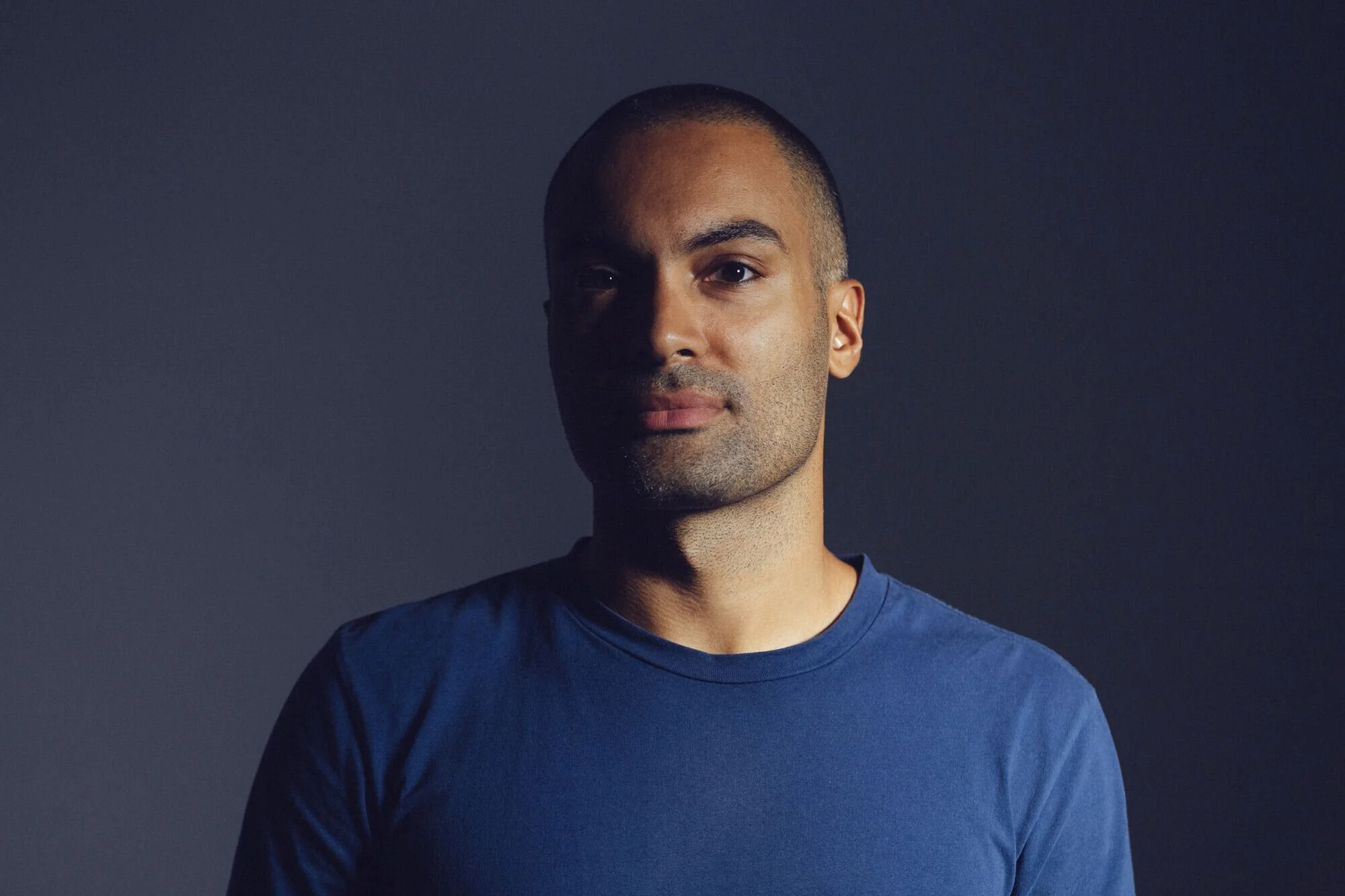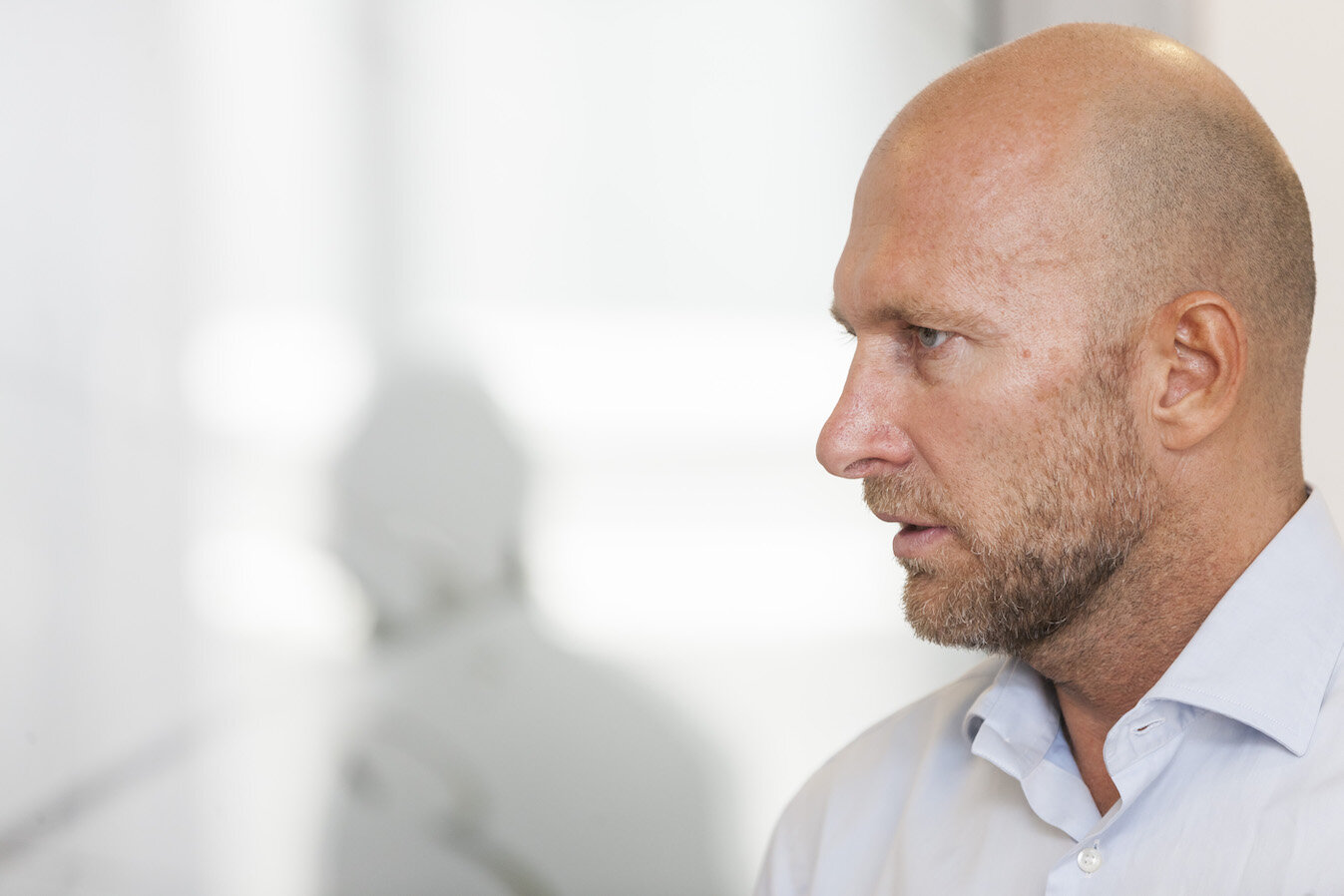Looking for winners on the right side of history
The 2020 Jury Chair of Cresta, Oriel Davis-Lyons, shares his thoughts on what work deserves recognition, what is the ‘biggest creative brief on the table’ and (as a creative director at Spotify) what tunes might get you through this ‘most emotional year’.
Oriel Davis-Lyons: ‘The changes we need have to come from the communities with most at stake.’
Cresta: Why do we need to celebrate creative work at this time?
Oriel: It is so important to recognize the work, the agencies and the brands that understand their role and responsibility to shape the kind of world we want to live in. People are questioning everything about what we used to call ‘normal’. They want to create a society that is more equitable and more humane and we need to hold up the work that is trying to achieve that.
How do you think the pandemic and the Black Lives Matter movement will affect the industry over the next year?
The industry is going to be questioned about its principles in a way that hasn’t happened before. It is happening already, but we will see a demand from employees and from the public for the industry to create a new, diverse, more empathetic way of working. One where our mental and physical wellbeing is not sacrificed for a pitch. One where teams full of white people is a disadvantage. I think the culture of silent acceptance is over. If you’re not following through on all the talk, don’t be surprised to be called out.
How do you see creativity being a part of returning the global economy to healthy growth?
I don’t think we should be thinking about returning the economy to what it was. What it was was the problem for a lot of people. Right now, we have the opportunity to imagine a new economy that is not about growth at all costs. Figuring out what that looks like is the biggest creative brief on the table.
Are there particular issues you hope the jury are alert to this year?
I hope that we are looking for work that makes us uncomfortable. That scares us into wondering: ‘how would they sell that in?’ Of course, I want to see craft rewarded but I also want to see that the industry is pushing itself out of its comfort zone. There have been a lot of empty statements this year as brands and agencies were caught flat-footed by issues that they have ignored for a long time. But then there were a few brands who really used their platform to push for change. And they were willing to live with the consequences. That is who I hope we hold up as an example. Were you willing to ask tough questions and be uncomfortable, to even lose sales, in order to be on the right side of history?
Having worked in New Zealand and now the US, have you noticed differences in how creative work is developed?
In NZ, you are much closer to the decision maker. Usually by your second presentation you are talking to the person who is either going to greenlight or kill your idea. And you move quickly. There is no budget to go in circles for months, go into testing and then go back to the drawing board. That means clients have to trust themselves and their agency, which is why you get so much good work from such a tiny country. It is a great place to start your career because the industry is full of nice, super talented, no-nonsense people who just want to make great work. In the US, it can feel like the presentations and the decks are the job because it can take months to take a piece of work up the chain in one piece. But you are also working on a scale here unlike anything else, so when you hit a home run you instantly forget the months of pain it took to get there.
Are there formative pieces of work, or projects, that you have learned key things from that you can share?
You learn something different on every project. There was one shoot with a very angry director that made me realize I am not interested in making great work by any means necessary. If working with you made everyone feel like crap, what was the point? Other projects taught me that it is not my job to impose my own personal taste on others. I worked with an ECD who had a certain frat boy sense of humor and would rewrite everyone’s scripts before a meeting. I never want to be that person. My job is to trust my team, build on their good work, advocate for them and protect them. Just because I don’t always get some of the references, doesn’t mean they are wrong.
Are there any creative leaders, or indeed other thought leaders or people of action, that you look to as some kind of guides in your work?
I always find myself inspired by people who go out and build something on their own that is rooted in their principles. It is like leaping into the unknown and trusting that there are others out there who think like you do. My friend Mo Said left the best agency in the world to start Mojo Supermarket. Now, when you see the work he and his team are doing it’s a reflection of who I have always known him to be. Fun, smart and interesting. I think the industry gets addicted to talking about all the great things we’re going to do, so I really admire the people who just get on and do it.
What agency model is best equipped to prosper in the future?
Smaller and with more Women, BIPOC and LGBTQ people in charge. I’m sure the big name agencies are genuinely trying to meet the moment and make real changes. But it is like trying to turn a big, diesel-guzzling truck into an electric sports car one piece at a time. You might get sort of close but at some point you are better off scrapping the whole thing and building the model you want from scratch. The real changes we need are not going to come from rooms full of white dudes (sorry, rooms full of white dudes) who don’t know what it is like to be marginalized in the industry. The changes we need have to come from the communities with the most at stake. So, expect to see smaller, diverse agencies and collectives popping up to work with clients who align with their values.
How should young people best prepare to get into the industry?
Developing a thick skin is very, very important. There are not many jobs where most people you work with will tell you 90 per cent of the work you do isn’t good enough. Learning how to take feedback and criticism seriously but not personally will help you survive. I also encourage young people to absorb as much culture and inspiration while they have the time because the further into the industry you get the less time you have to refill your creative well, which is why the industry is always referencing itself. So get as inspired as possible so you have a deep well to draw from.
How can mentoring improve diversity and inclusion in the industry?
Black and Brown people don’t have the same old boys network that White people have. We don’t have legacy hires or lots of friends in high places. Mentoring not only passes on vital advice that can help soften the landing for many young people of color but it creates a much-needed network that you can lean on for support and that can help you find opportunities. This year has been the most emotional year I have ever experienced. What has helped me keep it together has been my network of friends and colleagues who are all checking in on each other, passing on opportunities and just helping each other get through this. I'd say to every Black senior in the industry, give your time to someone who can benefit from it. The more we all do, the more we all win.
What’s on your favourite Spotify playlist?
Finding new music excites me so much so I rely on a lot of the Spotify curated playlists for that. But there are always people I keep in heavy rotation. Kendrick, Coltrane, Robert Glasper, Solange, Rapsody, Erykah. But I also like to go back to my UK roots which is Garage, Grime, Drum & Bass, Dancehall. Anything with big, dirty basslines is my jam.
Oriel Davis-Lyons is the 2020 Chair of the Cresta Awards. Read more about his work here.











